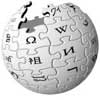"...they say God made Man to look like him, but in truth, Man may have created God to look like him."
Saturday, December 31, 2005
The Image of God
Friday, December 30, 2005
The New Burger King!
Burger King will finally be opening a Penang franchise in 2006. What took them so long, I wonder?. Even Malacca got an outlet in the middle of 2005. I've always maintained that it's easy to conquer the fast-food landscape - open an outlet serving:
- burgers from Burger King,
- side dishes from Kenny Rogers,
- chicken from Nando's,
- french fries and ice-cream cones from McDonald's.
- [edit - how could I forget] and of course, A&W root beer.
 Yum yum.
Yum yum.
Saturday, December 24, 2005
The Lord of the Rings... by someone else?
Dr. Suess's FOTR:. "Gandalf, Gandalf! Take the ring! I am too small to carry this thing!" "I can not, will not hold the One. You have a slim chance, but I have none. I will not take it on a boat, I will not take it across a moat. I cannot take it under Moria, that's one thing I can't do for ya. I would not bring it into Mordor, I would not make it to the border."
LotR by George Orwell: "I cannot read the fiery writing," said Frodo. "There are few who can," replied Gandalf. "It is the language of Mordor, which I will not speak here. Translated into the common tongue, it reads: 'All rings of power are equal, But some rings of power are more equal than others.'"
Merry Poppins, P.L. Travers & Walt Disney: o/` Wraith-wraithery, wraith-wraithery, wraith-wraith-eree, A Nazgul's as nasty as nasty can be. Wraith-wraithery, wraith-wraithery, wraith-wraith-eroo, your luck will run out when I'm looking for you. So give me the Ring, or you're Nazgul, too! o/` o/` Just a spoonful of lembas helps the athelas go down, the athelas go down, the athelas go down. Just a spoonful of lembas helps the athelas go down in a most delightful way. o/` o/` Feed the orcs, tuppence a bag, tuppence, tuppence, tuppence a bag. o/` o/` Oooh...taurelilomeatumbalemornatumbaletaurealomeanor, if you say it too slow then you won't make it to dinner. Unless you've got some time on hand don't say I didn't warn ya. taurelilomeatumbalemornatumbaletaurealomeanor. o/`
Tuesday, December 20, 2005
The Christmas War?
 Many familiar Christmas symbols have their roots in paganism: kissing under the mistletoe was part of a fertility ritual; burning Yule logs a tribute to Mithra; Holly and ivy represent the male and female form. The ubiquitous Christmas tree is a hybrid of medieval legend and evergreen trees, symbolizing the rebirth of life.
For many years Christmas was a blur of pagan festivity and religious ritual. The "modern" version of Christmas we all know today was born in 1843, with Charles Dickens' A Christmas Carol. The short novel centered on the redemption of the cynical Scrooge, and emphasized charity, family, and hope. The heartwarming story changed the perception of Christmas in England and America. Carols, cards, pudding, and the family dinner are all elements from Dicken's story that became tradition.
Today critics point out that Christmas has become too commercialized. Secularists complain of the Christian elements being forced on them, while Christian fundamentalists say the meaning of Christmas has been lost. I just hope they don't waste too much time arguing about it.
I believe that Christmas is for everyone. I find it a wonder that in a world filled with cynicism and suspicion, people can still universally celebrate a day where they take time to be together, to hope for the future. David Foster and Linda Jenner put the sentiments of Christmas into beautiful words in their song, My Grown-up Christmas List:
Many familiar Christmas symbols have their roots in paganism: kissing under the mistletoe was part of a fertility ritual; burning Yule logs a tribute to Mithra; Holly and ivy represent the male and female form. The ubiquitous Christmas tree is a hybrid of medieval legend and evergreen trees, symbolizing the rebirth of life.
For many years Christmas was a blur of pagan festivity and religious ritual. The "modern" version of Christmas we all know today was born in 1843, with Charles Dickens' A Christmas Carol. The short novel centered on the redemption of the cynical Scrooge, and emphasized charity, family, and hope. The heartwarming story changed the perception of Christmas in England and America. Carols, cards, pudding, and the family dinner are all elements from Dicken's story that became tradition.
Today critics point out that Christmas has become too commercialized. Secularists complain of the Christian elements being forced on them, while Christian fundamentalists say the meaning of Christmas has been lost. I just hope they don't waste too much time arguing about it.
I believe that Christmas is for everyone. I find it a wonder that in a world filled with cynicism and suspicion, people can still universally celebrate a day where they take time to be together, to hope for the future. David Foster and Linda Jenner put the sentiments of Christmas into beautiful words in their song, My Grown-up Christmas List:
No more lives torn apart, and wars would never start, and time would heal all hearts. Ev'ry one would have a friend, that right would always win, and love would never end: This is my grown-up christmas list.Merry Christmas, everyone!
Monday, December 19, 2005
The Ping-pong Conversations
Friday, December 09, 2005
The MMU Rocks
Wednesday, December 07, 2005
The Talk on Pre-marital Sex
Monday, December 05, 2005
The Wikipedia and Google
 In 1997 two Ph.D. students registered the domain www.google.com. Their vision: to "organize the world's information and make it universally accessible and useful". Today nearly everyone uses Google as their search engine. Search engines are powerful: they are the gateway into the Internet, the librarians that tell you what books to read, what suits your needs.
Google uses a "democratic" model:
In 1997 two Ph.D. students registered the domain www.google.com. Their vision: to "organize the world's information and make it universally accessible and useful". Today nearly everyone uses Google as their search engine. Search engines are powerful: they are the gateway into the Internet, the librarians that tell you what books to read, what suits your needs.
Google uses a "democratic" model:
Google interprets a link from page A to page B as a vote... pages that are themselves "important" weigh more heavily and help to make other pages "important."
While Google works most of the time, its weaknesses are apparent. Like any democracy, popular opinion is always suspect. That everyone believes "A" is the best option doesn't make it so. The "right" option can truly be known only if all information pertaining to it is filtered - but again, what happens if someone controls the filter? Google may be objective, it's mission admirable, but it's far from infallible. Many website owners routinely try to "bump up" their Google ratings by creating sites linking each other.
 Another popular information source is the Wikipedia, "the free encyclopedia that anyone can edit." Also founded on democratic principles, anyone can edit or start an article on Wikipedia. It relies on two assumptions: that its self-governing community will weed out pranksters and malicious writers, and that as an article is edited by more and more people it will gain objectivity and accuracy. Again a noble intention, but prone to the same fallacies. Robert McHenry, former editor of the Encyclopedia Britannica, was scathingly critical of Wikipedia in an article written November, 2004: "The Faith-Based Encyclopedia". He asserts that the common user simply lacks the experience and knowledge to provide others with an accurate source of information. He likens it to a public toilet:
Another popular information source is the Wikipedia, "the free encyclopedia that anyone can edit." Also founded on democratic principles, anyone can edit or start an article on Wikipedia. It relies on two assumptions: that its self-governing community will weed out pranksters and malicious writers, and that as an article is edited by more and more people it will gain objectivity and accuracy. Again a noble intention, but prone to the same fallacies. Robert McHenry, former editor of the Encyclopedia Britannica, was scathingly critical of Wikipedia in an article written November, 2004: "The Faith-Based Encyclopedia". He asserts that the common user simply lacks the experience and knowledge to provide others with an accurate source of information. He likens it to a public toilet:
...it may seem fairly clean, so that he may be lulled into a false sense of security. What he certainly does not know is who has used the facilities before him.
Another, more vociferous anti-Wikipedia site claims that Wikipedia's perceived objectivity is a false front. Behind the scenes, it claims, there are cliques of elitist "editors" who hold considerable clout, who have the final say over what edits make it to the final article - in effect, making it no less subjective than any other source. Maybe even less so, as being popular in cyberspace isn't an indicator of how accurate your writing/editing may be. To its credit, Wikipedia itself has articles documenting the controversy, even linking to sites like Uncyclopedia which parody it.
But still, whenever I find myself wanting to look something up I turn to Wikipedia almost every time. Same thing whenever I need to search for a webpage, I Google it. I suspect there are many others like me. It's only recently that I have begun to question my sources of information.
Ours is an age where information flows more freely than ever before. On one side it can give us immense knowledge. On the other it can also misle us. It's up to all of us to be careful in what we allow through our "filter". Knowledge is power - people who control the flow of knowledge are even more powerful.
Saturday, December 03, 2005
The Flash Training
The Face Transplant
The transplant does not give the patient's face the appearance of the deceased donor's face because the underlying musculature and bones are different. Facial movements are due to the brain so the personality as expressed by the face remains that of the patient. Only the skin of the face is transferred from the donor, not the three dimensional shape nor the personality it expresses.



